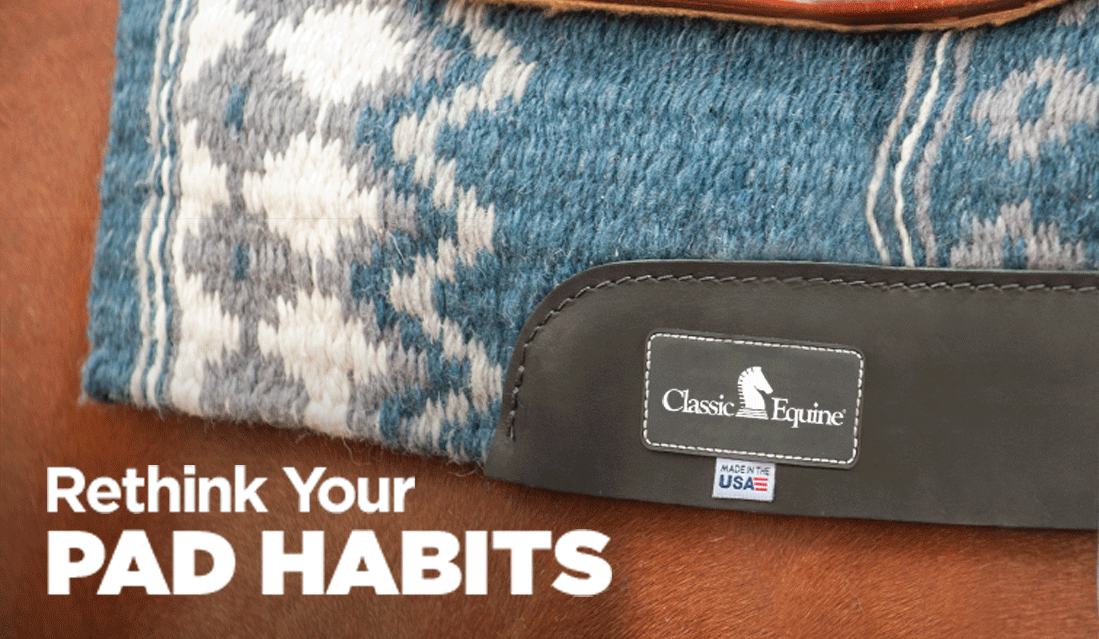Use these tips from world champion Hailey Kinsel to select your next barrel prospect.
For being fairly young, I have had a good bit of experience looking at prospects. My mom, Leslie, bought a few yearling and 2-year-old colts to train and ride when I was growing up, and when I got into high school, we started doing it together. “Sister,” (DM Sissy Hayday) for example, was one of those prospects we purchased together when I was a freshman in college. We were buying prospects to keep for ourselves, as we were not a training operation, so I learned at a young age to be very meticulous about selecting the perfect colt.
We have been asked before, “Where do you get your colts?” The fact is there is no magic fountain of potential winners out there. Finding the right prospect takes patience, experience, and doing your due diligence to determine if this colt fits you, your family and your goals. A few general pieces of advice for someone looking at a prospect for purchase would be to find out the colt’s history, learn if they are likely to be trainable and determine their physical soundness for barrel racing.
When looking at a particular prospect, we like to learn as much as possible about the history of that horse. We ask the breeder all about how the colt was raised, such as the temperament of the mare and the environment they lived in when the colt was young. We then ask about how the colt was halter broke and weaned, and how it handled that situation. Leading into how the colt was started, the breeder may wish to refer me to the colt starter, who would have a first-hand perspective on how the colt took to being broke and trained.
Keep in mind breeders care about their horses and will more than likely be willing to divulge this information to a serious buyer. Even through a sale, the breeders and colt starters are often present and as interested as the buyer in getting the colt in good hands to improve their program and reputation.
A necessary trait in a barrel racing prospect is trainability. To get an idea of the colt’s trainability, the buyer can look at their pedigree, ask the colt starter and observe the colt’s personality by being around it at or before the sale. A horse’s personality is partly bred into them, and partly developed in their early years. As far as bloodlines go, some are more willing than others to work. We like to study the industry and pay attention to what bloodlines other people have had success on, as it is likely that breeding produces a willing, trainable animal.
We will then quiz the colt starter on how easily the colt took to learning new things, even as simple as the daily grooming and saddling routine. Lastly, by developing a keen eye for horses, or taking someone more experienced along with you, you may be able to notice intelligence and willingness in a colt as they are shown to sell.
In my opinion, the most important aspect of buying a prospect for barrel racing is determining soundness. We ask ourselves, “Is this horse built to run and turn?” If there is any obvious unsoundness, we will scratch that colt off our list. A common misconception I see in the barrel racing industry is some believe that how a horse is bred determines its potential ability. The truth is, it doesn’t matter what is on the horse’s papers if it came into the world put together in a funny way. That just happens—some colts get the best parts of their sire and dam, and some are a combination of their parents’ weaknesses. If there is a weakness in their body that will hinder the colt’s ability to do its job later in life, I don’t want to spend my time and money on that colt. If the colt appears well-balanced, sound and travels nicely, I will then ask the seller for any current X-rays or the option to vet-check the colt and take X-rays. While that does cost more money upfront, I believe it will cost me less in the long run to go ahead and find out if that prospect has any issues before purchase.
Learning these details about a prospect can put you leaps and bounds closer to being ready to purchase your dream colt. While looking and dreaming, keep in mind just because a colt is bred to be a barrel horse doesn’t make it a potential winner. If that colt has a positive history, is trainable or its parents were trainable, and is sound and strong enough to handle the physical stress of running and turning, then the colt has a chance of being a potential winner. Having good help in your corner to teach you what to look for is always beneficial, whether that is your parent, friend or coach, or in my lucky case, all of the above. Good luck in your search for the perfect horse for you.
First published in the August 2019 issue of Barrel Horse News.




